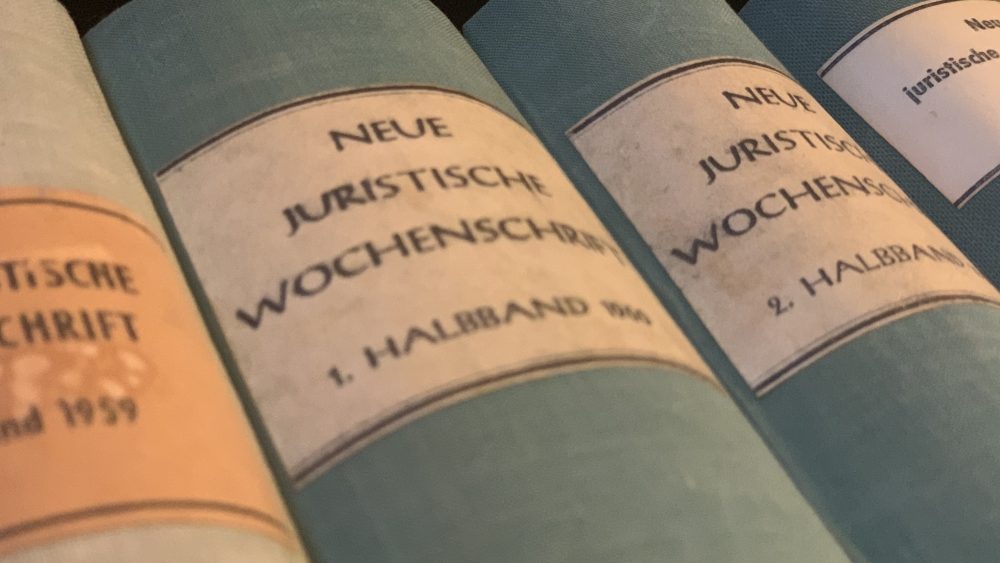Expert costs judgment
On June 30, 2017, Brühl District Court 24 C 446/17 ruled that the costs of an expert(surveyor) in a traffic accident case must be reimbursed in full by the opposing motor vehicle liability insurance company. Objections to the amount of the expert costs on the part of the insurance company were rejected.
The AG Brühl decided as follows:
The defendant is ordered to pay the plaintiff EUR 146.37 plus interest in the amount of 5 percentage points above the base interest rate since February 20, 2017.
Orders the defendant to pay the costs.
The judgment is provisionally enforceable. The defendant is permitted to avert enforcement by providing security in the amount of 110% of the amount enforceable on the basis of the judgment, unless the plaintiff first provides security in the amount of 110% of the amount to be enforced in each case.
Without facts (pursuant to Section 313a (1) ZPO)
Reasons for the decision:
(expert costs)
The action is admissible and well-founded.
On the basis of the Road Traffic Act, the plaintiff can claim from the defendant the further damages asserted in the action regarding the remaining private expert costs.
This division of the Brühl Local Court has followed the case law of the Federal Court of Justice from the ruling of the Federal Court of Justice on February 11, 2014 (case no. VI ZR 225/13). Based on the guidelines of this decision, the defendant did not comply with the distribution of the burden of proof set out therein, which assumes that the injured party regularly satisfies its burden of proof regarding the amount of damage by submitting an invoice from the expert it has engaged to remedy the damage, whereas the injured party is free to demonstrate that the injured party has breached its duty to mitigate damage pursuant to Section 254 (2) sentence 1 BGB.
According to this case law, a simple denial of the necessity of the stated invoice amount and its individual components is generally no longer sufficient to call into question the amount of damages claimed. According to the Federal Court of Justice, only if the injured party can recognize that the expert selected by him is charging fees for his work that significantly exceed the usual prices in the industry does the economic efficiency requirement under the law on damages require that a cheaper expert be commissioned.
The plaintiff cannot be accused of violating the duty to mitigate damages, since the average layperson, as an accident victim, is unlikely to have any knowledge of the BVSK fee surveys. Typically, he is likely to calculate the amount of an expert’s fee on an hourly basis, in this case for a qualified and self-employed person. Due to a lack of insight into the relevant trade, it is almost impossible for a layperson to calculate the basic and ancillary costs.
The fee in dispute consists of a basic fee, which is based on the amount of damage, as well as ancillary costs and VAT. This billing method is basically typical and is not objectionable in substance.
Even if a determined basic fee exceeds the framework of the relevant BVSK fee survey, this does not necessarily mean that this leads to a recognizable, obvious overpricing for the injured party.
The same applies to ancillary costs. The defendant does not expressly claim that overpricing is evident to everyone. Rather, it presents objective circumstances. However, it is questionable whether they are known to an injured party. For example, the assumption of a reimbursement of travel costs of EUR 0.30 per kilometer or the reimbursement of printing costs of EUR 0.50 per page, as they have been made by the case law cited by the defendant.
Since the writing costs may also include personnel costs, the photo costs may include a share of the costs for the acquisition and maintenance of the corresponding hardware and software and travel costs may typically also include a share of working time, the invoice does not provide any indications that the amounts invoiced would be recognizably excessive, unreasonable or unusual for a layperson.
If one follows the guidelines of the Federal Court of Justice, the question of whether individual invoice items and lump-sum amounts are recognizable as excessive must always be based on a lay injured party who, in the absence of special insights and opportunities for comparison, is likely to consider the invoice at issue here to be customary in the industry.
A stricter standard for the assessment of the necessity of the expenses to remedy the damage pursuant to § 249 para. 2 sentence 1 BGB is also not to be applied because the claim was assigned by the injured party to the private expert before it arose and later to the plaintiff via the private expert. The perspective of the injured party remains decisive for the assessment of necessity even after the assignment of the claim to the private expert and then to the plaintiff, because the content of the claim for damages cannot change as a result of the assignment, especially since the assignment here was only made on account of performance (BGH, NJW 2014, 1947)
The ancillary costs claimed in the form of interest prove to be owed in terms of default (Sections 280, 286 (3) sentence 1, 288 BGB) in view of the justification of the principal claim in terms of reason and amount.
The decision on costs is based on Section 91 ZPO. The decision on provisional enforceability is based on sections 708 no. 11, 711 ZPO.
The amount in dispute is set at EUR 146.37.
–
You can find more articles on this topic here.
Do you have further questions about this or a similar issue? Then please here contact us here!
Back to homepage Rechtsanwälte Römer



Comments are closed.